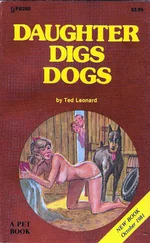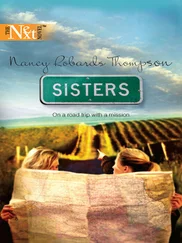Francesca stood nearby, half in and out of shade, gazing northward, toward the belt of woodland that curved along the riverbank. The vicar had said that Scrag End field lay beyond the woodland, alongside Hodge Farm. Was Francesca worried about Adrian Culver’s dig? Her dark eyes were grave, her lips tightly set, as though she sensed danger lurking in the shadows. I was about to call her name when she turned, and I caught my breath. Francesca, silhouetted against the cedar’s deep-green boughs, with dappled sunlight striking coppery sparks from her auburn hair, was more than handsome. She was resplendent, an olive-skinned goddess in a glowing white shirtdress and grass-stained flats.
The church bells—automated since the early seventies, according to Lilian—tolled the hour and Francesca’s pensive expression vanished. “You’re right on time,” she said. “Here, give me the bottle and I’ll get Will started.”
Francesca and I lifted the boys into our arms, sat on the bench, and got snack time under way. Rainey watched in silence for a moment, then flopped onto her back, declaring listlessly, “Just like Mummy.”
So much for nature’s miracles, I thought. I felt like a magician whose best trick had fallen flat. Hoping to redeem myself, I cradled Rob in one arm and groped through the toy bag until my fingers touched a familiar cottontail.
“Rainey,” I said, “I’ve got someone here I’d like you to meet. He used to live on a shelf in my cottage, but these days he prefers to be with the boys.”
With a wizardly flourish, I produced a rabbit from the toy bag. Not a lettuce-nibbling rabbit, but a small pink-flannel bunny with black button eyes, hand-stitched whiskers, and a grape-juice stain on his snout that brought to mind a little girl who’d been every bit as rambunctious as Rainey.
“His name is Reginald,” I continued, “and as you can see, he doesn’t have anyone to play with.”
“I’ll play with him!” Rainey scrambled to her knees and reached for my pink bunny. “Reginald,” she began, “my name is . . .” She hesitated, gazed intently at Reginald’s face, then looked up at me, round-eyed with astonishment. “He already knows my name. And he wants to show me where the hedgehog lives.”
“Hedgehog?” said Francesca.
“Reginald says there’s a hedgehog family living in the wall, round back of the church. He says I simply must see them.” Rainey jumped to her feet and galloped away, Reginald flopping and braids flying as she dodged between headstones. I looked deeply into Rob’s eyes and hoped that Reg would one day fire my son’s imagination as vividly as he was firing Rainey Dawson’s.
“Did you tell Rainey about the hedgehog?” Francesca asked.
I looked at her uncertainly. “ There’s a hedgehog?”
Francesca nodded. “My brothers found the burrow years ago. It’s right where Reg—where Rainey said it’d be, in the wall, round back of the church.”
“Is that right?” I shouldn’t have been surprised. Aunt Dimity had made Reginald for me, and I had reason to believe that she’d put something besides strong cotton into her needlework. It would have been easier to explain to Rainey than to Francesca that Reg wasn’t your average pink-flannel bunny, however, so I feigned nonchalance. “Maybe the vicar told Rainey about the hedgehog.”
Francesca rolled her eyes. “ The vicar knows as much about hedgehogs as I know about his evensongs.”
“You don’t go to Saint George’s?” I said.
“My family’s Roman Catholic,” she replied. “But my father and brothers used to mow the grass and rake the paths here.” She nodded toward the low wall. “My father planted the roses.”
“They’re gorgeous,” I said. “The parishioners must have been delighted.”
“Some were.” Francesca shifted Will in her arms. “You sign Mrs. Kitchen’s petition?”
“Yes,” I admitted. I would have said more, but Hurricane Rainey had returned.
“Lori! Francesca! Look who I found!”
I looked up, fully expecting to see Rainey juggling a pair of hapless hedgehogs. Instead, she was bobbing cheerfully in the wake of a tall, not unattractive man.
He was slender and deeply tanned, dressed in khaki shorts, a short-sleeved blue shirt, and a crumpled, battered digger hat that looked as though it had been through several wars. His face was long and narrow, the skin drawn tightly across high cheekbones and a wide, thin-lipped mouth. He wore hiking boots and carried a small khaki rucksack on his back. A pair of half glasses dangled from a lanyard around his neck.
“He was looking at the wall paintings,” Rainey shouted breathlessly, “because Katrina and Simon made a muddle of the schoolhouse, so he couldn’t spend the whole day at Scrag End field, and he didn’t want to meet the hedgehog, but he wanted to meet you.”
“ Thank you, Rainey.” The man’s resonant voice was like a cello accompaniment to Rainey’s trumpeting. “You’ve explained the situation admirably.”
He ducked under the cedar’s drooping branches, blinked at the sudden change from light to shade, caught sight of my exposed breast, and flushed crimson.
“I do apologize.” As his head snapped to one side, his eyes met Francesca’s, and the flood of color drained from his face. He froze in place and at the same time seemed to melt, swaying slightly as a soft, involuntary moan escaped his lips.
“Dr. Culver,” said Rainey. “Why are you staring at Francesca?”
“Francesca,” whispered Dr. Culver.
9.
Rainey peered up at the tall archaeologist with a look of helpful concern. “I thought you wanted to meet Lori.”
The crimson tide returned to Adrian Culver’s face. He averted his gaze from Francesca, found himself staring once more at my maternal splendor, and was finally reduced to examining a buckle on his rucksack. My heart went out to him. Bill’s father was similarly ill at ease when he inadvertently caught sight of one of his grandsons dining au naturel.
“Are you sick, Dr. Culver?” Rainey asked, hugging Reginald to her chest.
“Rainey . . .” I reached for the sprig of wysteria she’d liberated from the vine on Bill’s office, and pointed to a headstone that was awash in a fragrant froth of climbing roses. “Would you please put the wysteria on that headstone?”
Rainey turned to see where I was pointing. “But it’s got flowers already,” she objected. “Why do you want me to—” She broke off to listen to Reginald, then took the wysteria from my hand and without another word trotted off.
“Take your time,” I called after her. “Reginald likes to visit that grave.”
“I know,” she called back.
Adrian Culver watched Rainey’s departure, then fixed his gaze at a neutral point halfway up the cedar’s trunk. “Ms. Shepherd . . .” he began.
“Please, call me Lori,” I said. Most of the time it was easier to use my first name than to explain that I hadn’t taken Bill’s last name when we’d married. “And allow me to introduce my friend, Francesca Sciaparelli.”
“Afternoon, Dr. Culver.” Francesca’s greeting was cool enough to chill lava.
“Please, you must call me Adrian. Both of you.” The poor man must have felt faintly ridiculous proclaiming his identity to the sky, because he dragged his digger cap from his head and cautiously lowered his gaze.
Abruptly, Francesca hefted Will to her diaper-draped shoulder and got to her feet. “I’ll pay my respects to Miss Westwood, as long as I’m here. I don’t want Rainey trampling the roses. My father planted ’em special.” She patted Will’s back and swept past Adrian Culver, without so much as a “Nice to have met you.”
Adrian stared after her, nonplussed. I, too, was taken aback by her bluntness, but I had no time to stare. The twins had, as always, finished their meals simultaneously, so I shifted Rob to my lap and closed down the mess hall. Adrian ventured a hesitant glance in our direction.
Читать дальше








